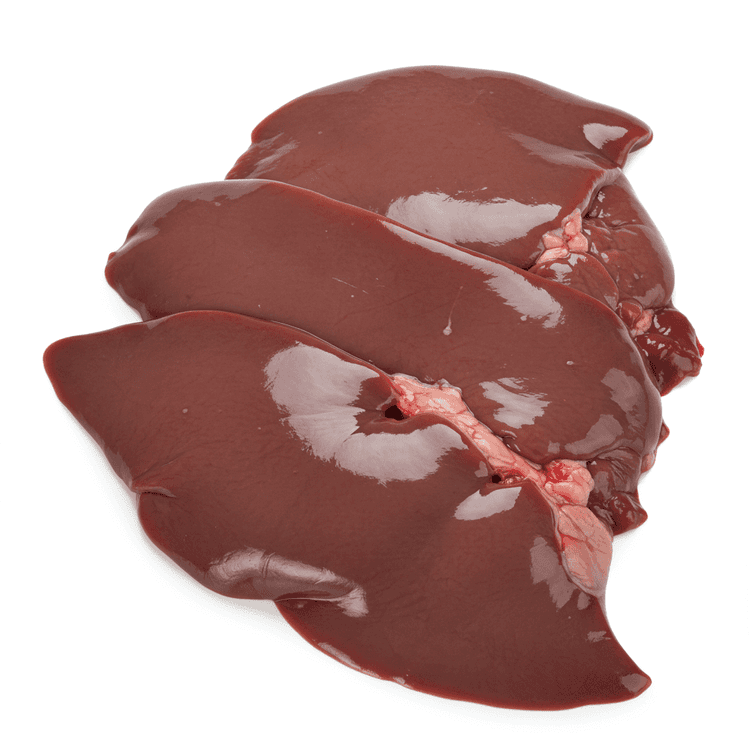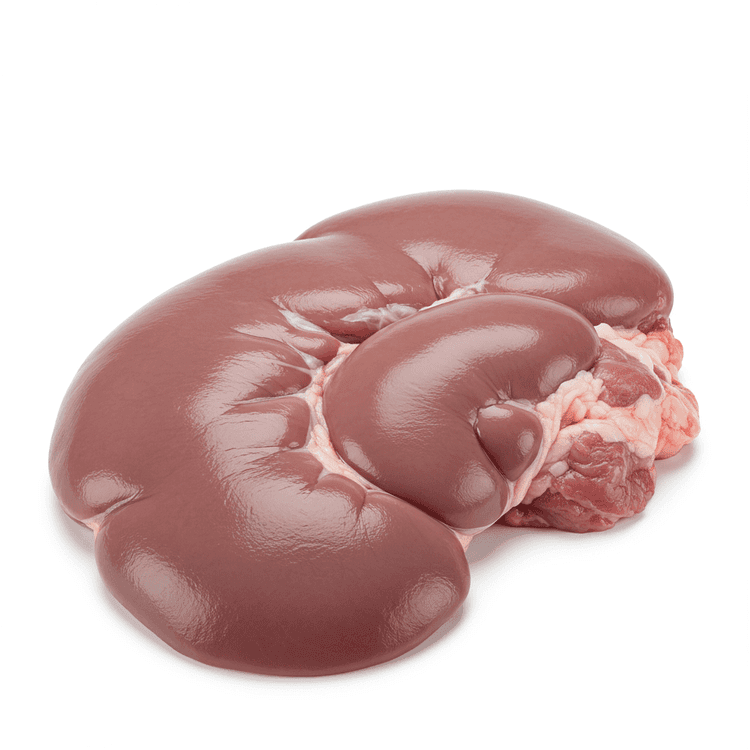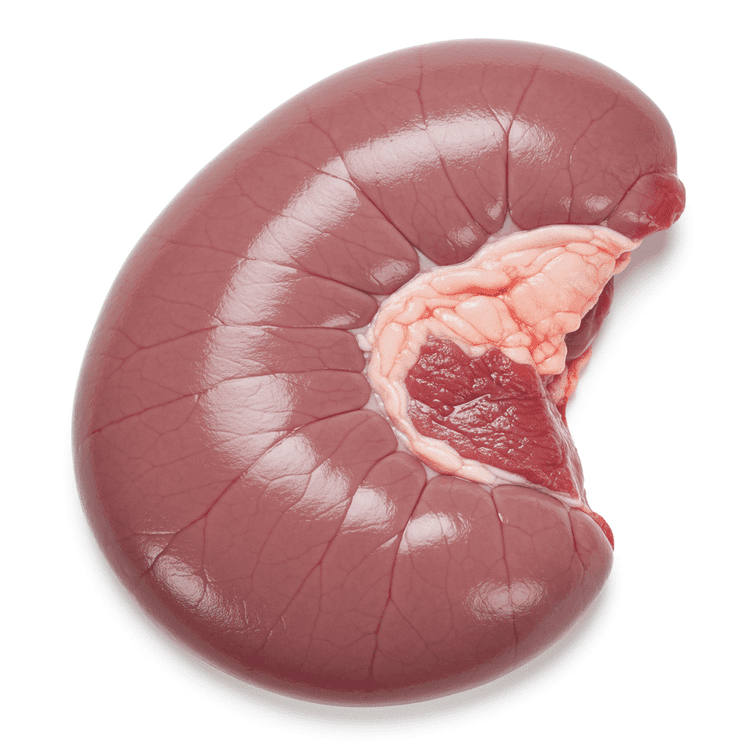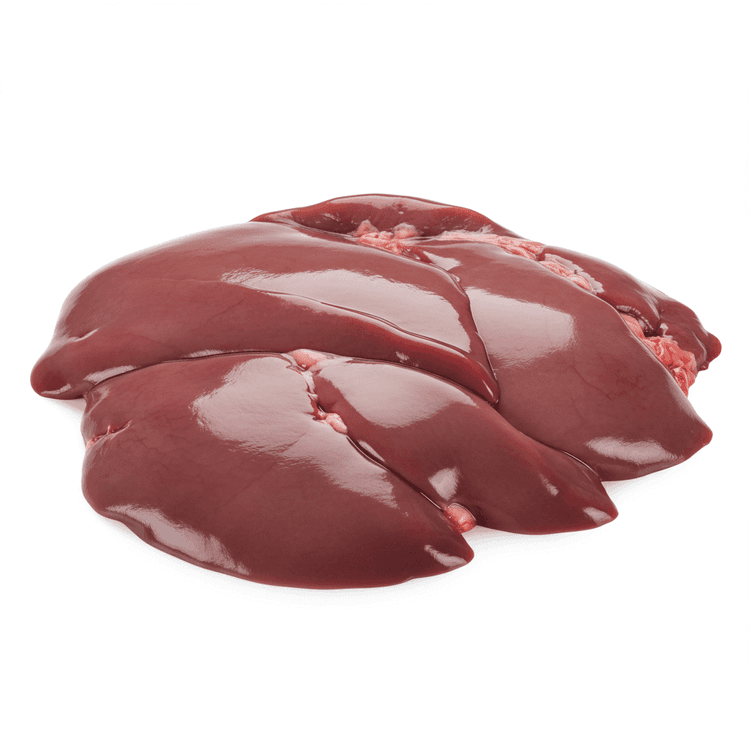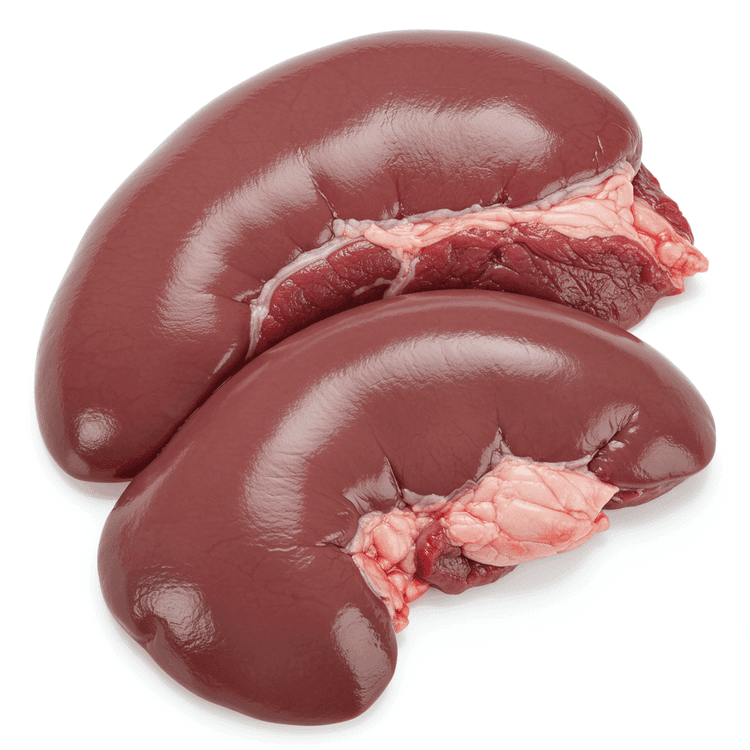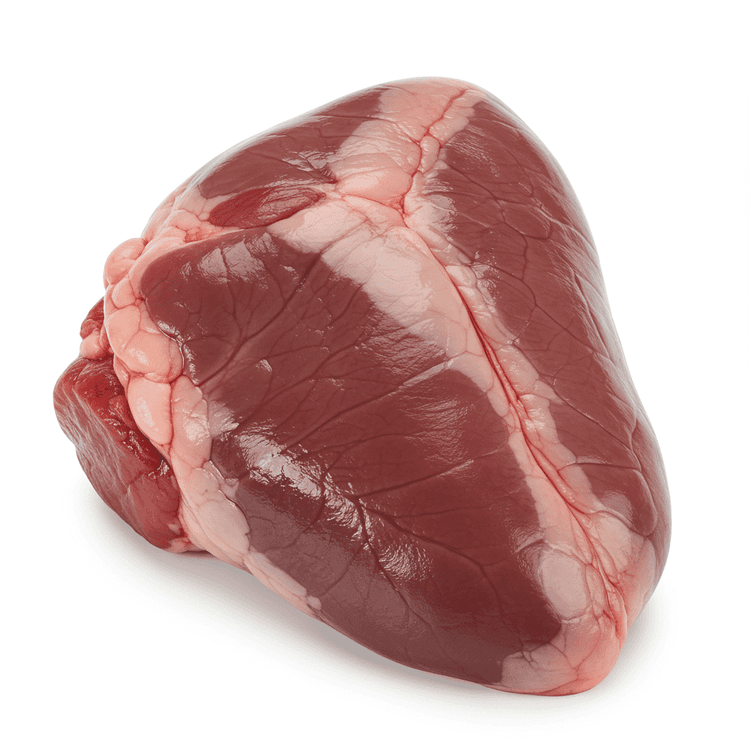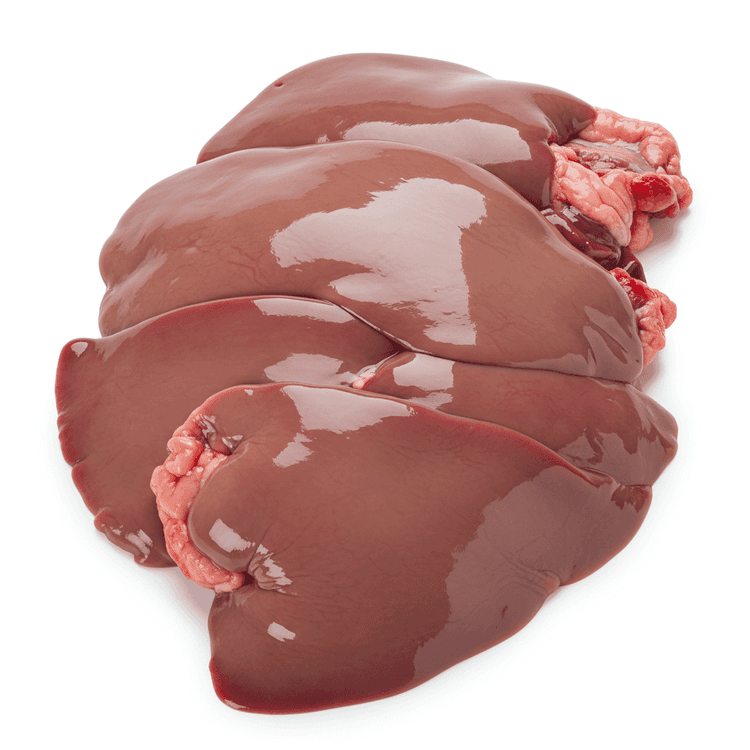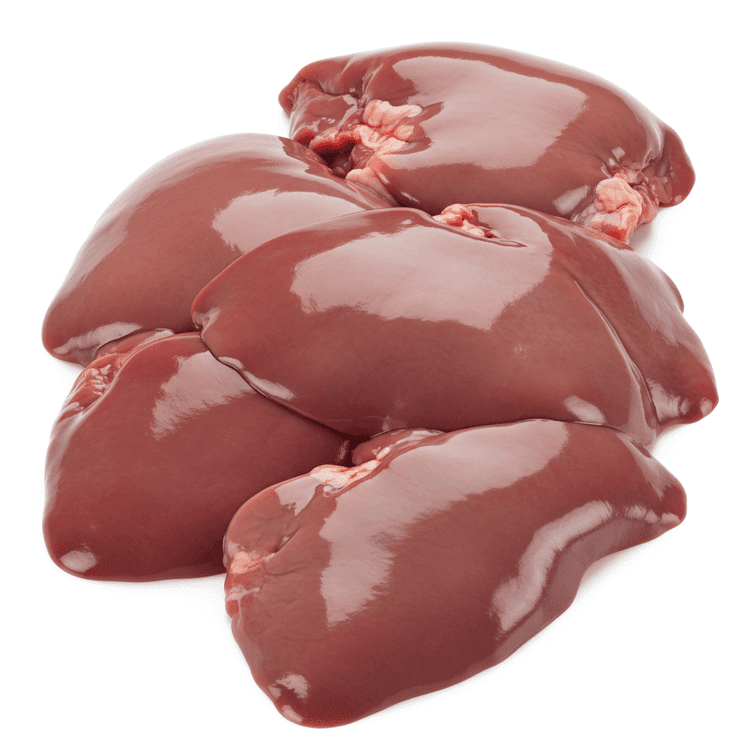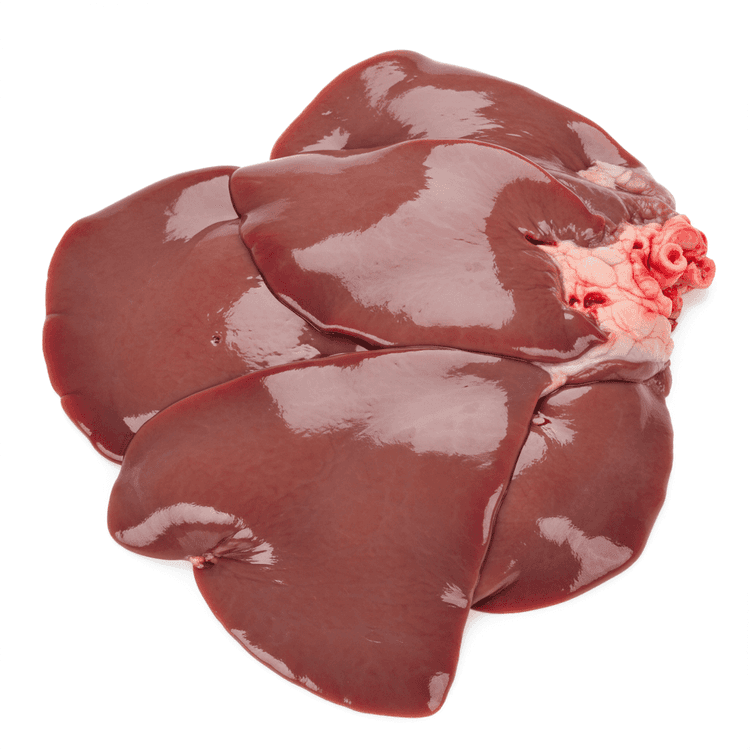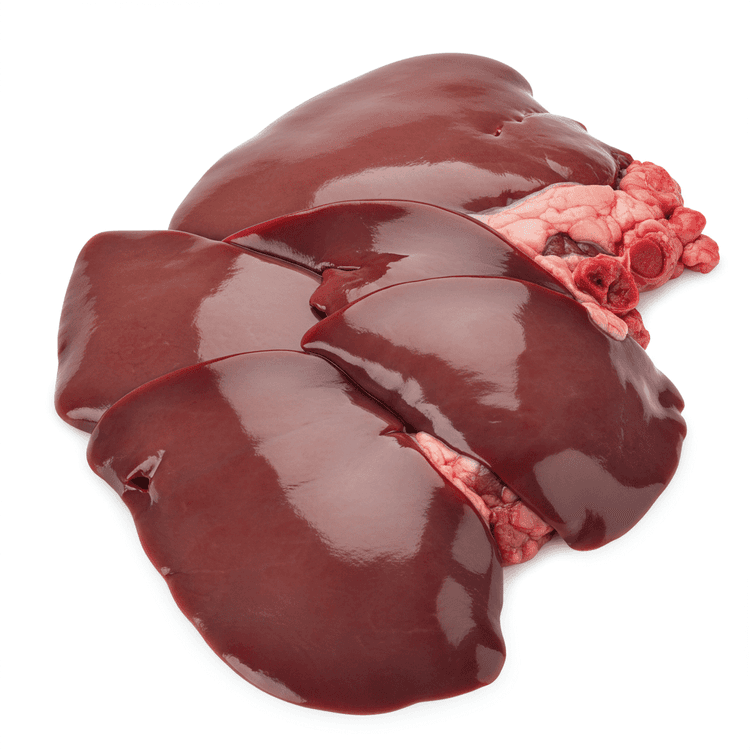
Beef Liver
Beef liver is a nutrient-dense organ meat with a distinctive, strong flavor. Its texture is generally smooth and somewhat soft when raw, becoming more firm when cooked. Raw beef liver has a dark reddish-brown color. It's a popular ingredient in dishes like pate and liver and onions. Explore beef liver recipes to discover its unique taste and health benefits.
Common Uses
- Beef liver is often pan-fried or sautéed with onions, bacon, or other vegetables for a classic dish offering a rich, savory flavor. The recipe ensures tender texture by properly preparing and cooking the liver to avoid toughness.
- Beef liver can be ground and incorporated into meatloaf or meatballs, adding nutritional value and a distinctive depth of flavor to the dish. Proper mixing is essential for even distribution.
- Beef liver makes a great ingredient for homemade pate. It contributes significantly to the rich and creamy flavor profile that the dish is known for.
- Use beef liver as a base for liverwurst, a type of cooked sausage, offering a substantial protein source and a distinct flavor.
- Beef liver is also often used to create a nutrient-rich pet food, either cooked and mixed with other ingredients or dehydrated into treats. Pay close attention to recommended feeding guidelines.
- Some cultures use beef liver in traditional stews, where its strong flavor enhances the overall richness of the dish. Slow cooking helps to tenderize the liver and meld its flavor with other ingredients.
Nutrition (per serving)
Nutrition (per serving)
Calories
191.4kcal (9.57%)
Protein
29.1g (58.2%)
Carbs
5.1g (1.85%)
Sugars
0.0g
Healthy Fat
2.4g
Unhealthy Fat
2.2g
% Daily Value based on a 2000 calorie diet
Nutrition (per serving)
Calories
191.4kcal (9.57%)
Protein
29.1g (58.2%)
Carbs
5.1g (1.85%)
Sugars
0.0g
Healthy Fat
2.4g
Unhealthy Fat
2.2g
% Daily Value based on a 2000 calorie diet
Health Benefits
- Excellent source of Vitamin A, crucial for vision, immune function, and cell growth.
- Rich in iron, helping prevent iron deficiency anemia and supporting energy levels.
- High in Vitamin B12, essential for nerve function and red blood cell formation.
- Provides copper, important for iron metabolism and energy production.
- Contains choline, beneficial for brain health and liver function.
- Good source of protein, vital for muscle building and repair.
Substitutes
Chefadora AI is here.
Experience smarter, stress-free cooking.
Storage Tips
Fresh beef liver should be refrigerated immediately after purchase. Store it in its original packaging or wrap it tightly in plastic wrap or freezer paper to prevent drying and contamination. Use within 1-2 days for optimal freshness and quality. For longer storage, beef liver can be frozen. Wrap it tightly and store in the freezer for up to 2-3 months. Thaw it in the refrigerator before cooking to maintain its texture and prevent bacterial growth.
Marnirni-apinthi Building, Lot Fourteen,
North Terrace, Adelaide, South Australia, 5000
Australia
